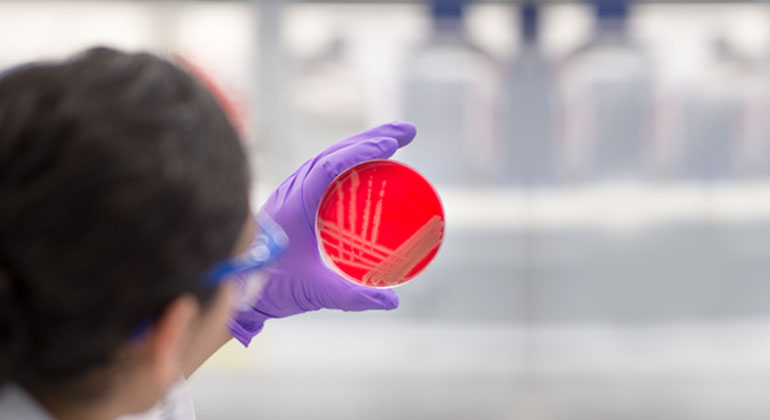Research

Infectious diseases are constantly changing; new ones are being discovered every year and some diseases evolve—and at Mount Sinai, we are constantly developing new treatments to meet the challenge. Whether it’s a new disease from overseas or a new strain resistant to current therapies, the Division of Infectious Diseases is researching new strategies for prevention, treatments, and cures.
As part of the Icahn School of Medicine at Mount Sinai, the Division of Infectious Disease is a leader in expanding our knowledge in many areas of infectious disease, including HIV/AIDs, insect-borne disease, and infection prevention and control. We also work closely with our colleagues in pediatrics, transplant medicine, and microbiology.
HIV/AIDs Research
Investigators in the Division of Infectious Disease are leaders in AIDS research, continually making significant strides forward with new insights, strategies for prevention, and innovative treatments.
Major areas of research include studies of individuals co-infected with HIV and Hepatitis C, innate viral immunity, and the interplay between HIV-1 and innate intracellular defenses. The division is also home to the HIV-Associated Nephropathy Program, the Mount Sinai Hepatitis C Virus Program, the NeuroAIDS Program, as well as conducting many HIV clinical trials.
Global Health and Travel Medicine Research
Zika and Ebola virus diseases have captured headlines, but many new diseases are being discovered every year. The Emerging Pathogens Facility studies new threats such as Middle East Respiratory Syndrome (MERS), severe acute respiratory syndrome (SARS), avian and 1918 influenza viruses, and more.
Pediatric Infectious Disease Research
We have a wide variety of research initiatives to keep our youngest patients healthy and thriving. The challenges we are studying range from the most complex cases to the most common, including respiratory viruses, complications from AIDS, and infections following organ transplants.
Infectious Disease Control and Prevention
Keeping our hospitals safe is paramount. To that end, we are in the forefront of studying how to prevent the spread of infection within health systems around the country. We have partnered with researchers to research infection prevention in neo-natal intensive care units, anesthesiology settings before surgery, as well as establishing guidance and protocols for clinical staff to prevent infection.
Research Supporting Transplant Medicine
Preventing and managing infection for transplant patients is key. The Transplant Infectious Diseases Program collaborates with the Heart Transplant Program, the Recanati-Miller Transplantation Institute, and the Bone Marrow Transplant Institute to improve the outcomes for patients. Our research initiatives include both solid organ and stem cell transplants, and are designed to both advance the field of knowledge and provide better care for our patients.